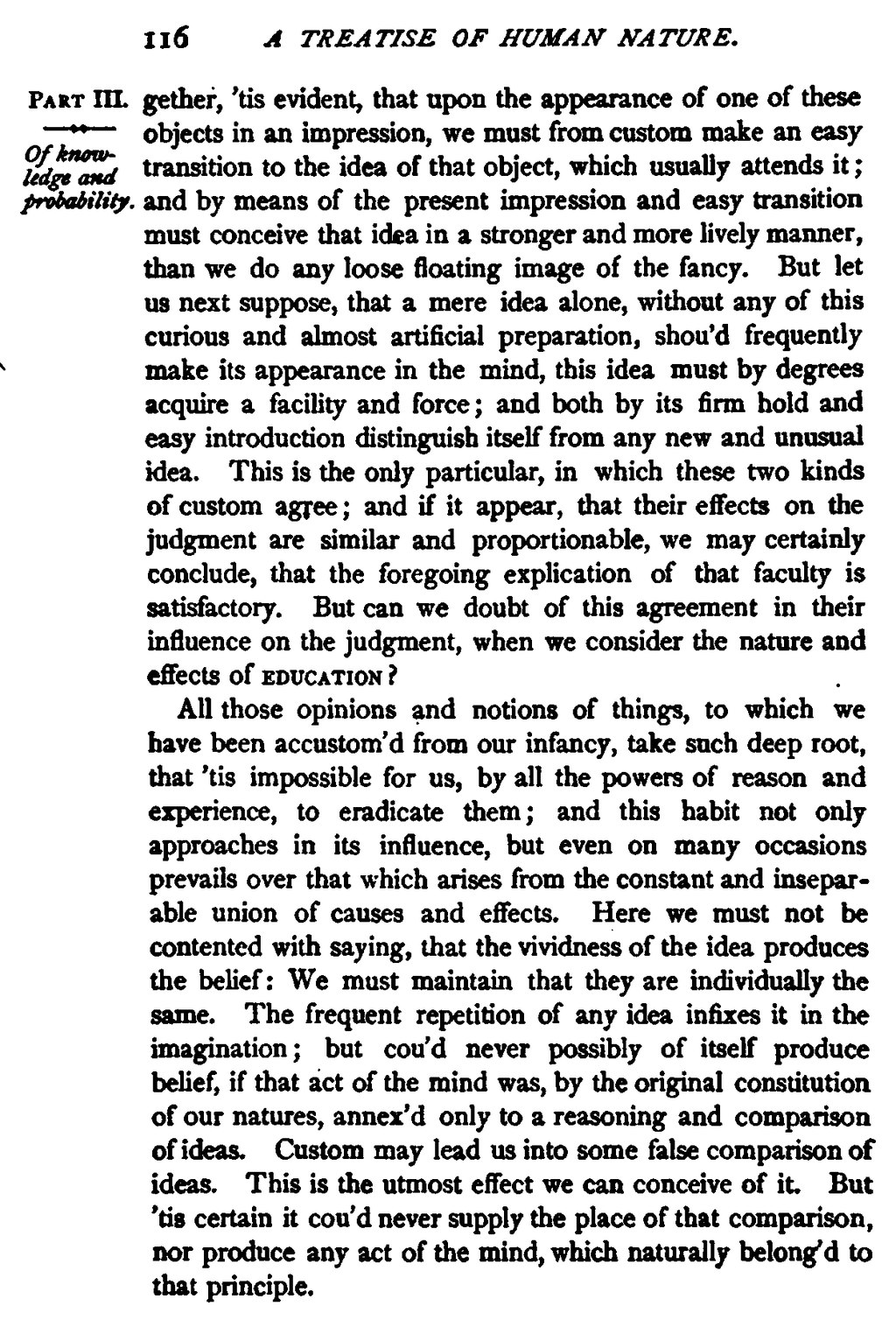gether, 'tis evident, that upon the appearance of one of these objects in an impression, we must from custom make an easy transition to the idea of that object, which usually attends it; and by means of the present impression and easy transition must conceive that idea in a stronger and more lively manner, than we do any loose floating image of the fancy. But let us next suppose, that a mere idea alone, without any of this curious and almost artificial preparation, shou'd frequently make its appearance in the mind, this idea must by degrees acquire a facility and force; and both by its firm hold and easy introduction distinguish itself from any new and unusual idea. This is the only particular, in which these two kinds of custom agree; and if it appear, that their effects on the judgment are similar and proportion able, we may certainly conclude, that the foregoing explication of that faculty is satisfactory. But can we doubt of this agreement in their influence on the judgment, when we consider the nature and effects of education?
All those opinions and notions of things, to which we have been accustom'd from our infancy, take such deep root, that 'tis impossible for us, by all the powers of reason and experience, to eradicate them; and this habit not only approaches in its influence, but even on many occasions prevails over that which arises from the constant and inseparable union of causes and effects. Here we must not be contented with saying, that the vividness of the idea produces the belief: We must maintain that they are individually the same. The frequent repetition of any idea infixes it in the imagination; but cou'd never possibly of itself produce belief; if that act of the mind was, by the original constitution of our natures, annex'd only to a reasoning and comparison of ideas. Custom may lead us into some false comparison of ideas. This is the utmost effect we can conceive of it. But 'tis certain it cou'd never supply the place of that comparison, nor produce any act of the mind, which naturally belong'd to that principle.
